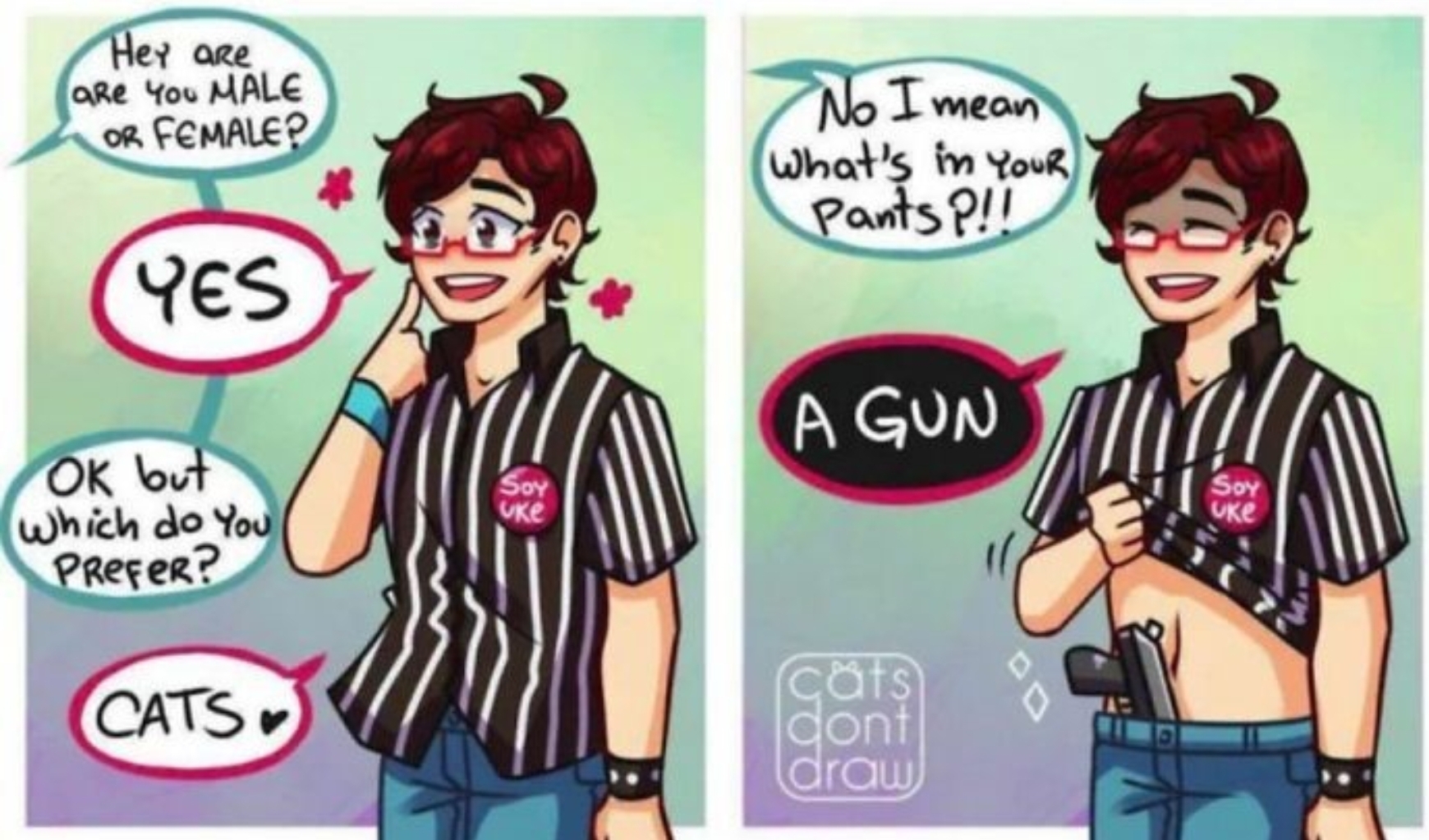this post was submitted on 14 Aug 2024
601 points (99.8% liked)
196
16738 readers
1705 users here now
Be sure to follow the rule before you head out.
Rule: You must post before you leave.
founded 2 years ago
MODERATORS
you are viewing a single comment's thread
view the rest of the comments
view the rest of the comments

I'm sorry; I was being sarcastic. Thank you for the reply though.
I would like to add that since everybody makes mistakes, no one can (statistically) handle a gun 100% safely 100% of the time. E.g. a carried gun is never completely safe from theft. So no carrier is "safe", therefore no gun is "safe". Personally I would not use that word when referring to objects designed to do harm. I don't think a modern car is a good analogy. A better one would be "modern guillotines are incredibly safe".
I appreciate that you qualified your stated opinion with "personally," because I agree that this is a matter of perspective.
In my opinion, the word "safe" when applied to cars assumes we understand that traveling at 60+ MPH is itself more dangerous than standing still. Then, to call a certain car "safe" is to be using obvious relative terms; safer than this other car, rated highly by impartial safety experts, etc.
To wit: No one in a conversation about a car's safety would genuinely say "sure, if I buy your new vehicle I'll be better protected on the road than any other driver of a current production mid-size sedan, thanks to all these state-of-the-art safety features, but - pray tell - how 'safe' can you really call this car if could be stolen from me and used to run me down?" Or "this car doesn't seem safe, I could walk to the store and not need rollover protection."
I think guillotines would also work fine to illustrate the point. Guillotines are, of course, built to kill. Handled properly, I can easily imagine them being safe. If we put a rich man's neck in it and he loses his head, that is the correct function of the tool.
Safety is widely understood as protection from inadvertent danger. The rich man's death was not inadvertent. The car being stolen and used against you was not inadvertent. A trained person carrying a gun is safer than not. These tools are safe.
Well. Since the tools are lethal, and countries implementing the death penalty always end up killing innocent people, and more guns = more gun violence and accidents, it's obvious to me that these tools are not safe. To me, gun safety is as applicable to the real world as the perfectly straight line in mathematics, or the perfectly rational thinker in logics...
I'm fascinated by the emphasis on protection in your (and Americans' in general) definition of safety. In Europe, "safe" simply means "not dangerous". From your "~~wildly~~ widely (edit: typo) understood" definition, I get the feeling that you view danger as unavoidable. Would you mind sharing your thoughts on what safety would mean to you and your community, if there was no danger to protect from? Would you still carry a gun for protection if all strangers were harmless? Have you ever visited a country where no one, not even law enforcement, carries lethal weapons? Etc.
I said widely.
I don't expect to dissolve the biases between us, but if you are trying to understand my comment, pay attention to the focus on "relatively" and "perspective:"
Guns, and knives, and people, are inherently dangerous. That is a given, a truism. They are to be respected - humans for their innate value, and each for their capability to harm.
The risk of handling knives can be mitigated with respect, forethought, training, proper application, tool maintenance, etc. The fact that they are capable of hurting us should not be forgotten, but our relationship with them need not be dominated by it. In fact, with proper safety on the part of the handler, knives can be considered "relatively safe," especially from a statistical standpoint.
The same can be said for guns. And people.
Yes but the reason I don't agree with you is that knives, and cars for that matter, serve different purposes:
Do you not see the difference here?
This difference was the subject of my original comment. I see nothing being stated here beyond truisms.
The "safety" of those targeted for killing by killing tools or any tools used on purpose for defense or offense is a strange focus. The target of a tool used for killing being killed is not very safe, good observation?
Sure, it's truism. I just felt like I had to make myself super clear since you kept using car and knife safety as examples.
Your original comment spoke about safety mechanisms in gun construction, not about how carrying, in itself, makes others more unsafe, which is my point here. Along the way you've written things I thoroughly don't agree with, like
Take this video of unarmed policemen trained in de-escalation, for instance. Would this situation have been handled more safely if it was handled by gun-trained, armed policemen?
I appreciate your point being made clear. Now, please apply the concept of "carrying (a gun) makes others more unsafe" to cars and knives, examples of obviously inherently dangerous tools.
The real issue for me is capitalism. Are you a liberal? Because your "point" is liberal propaganda. Guns are not correlated to violence, inequality is.